Background of problem
Hello all , i have made a project in golang gin , and I have integrated the redis Clusterclient in it using "github.com/go-redis/redis/v7"
P.S. Redis that I am using is a redis cluster hosted on AWS
the redis commands that I am using are simply redis.Get and redis.Set only.
Now I have made one API and used caching in it, and when I run it locally, response times are around 200 to 300ms, which is awesome (thanks to Redis)
Main Problem
now when I start doing the load testing on the same API with around 100 concurrent users , response time gets significantly increased ( around 4 seconds). I used spans to monitor the time taken by a different part of the code, and I got this
Getting from primary, getting from secondary are for the redis.Get command
Setting the primary , setting the secondary are for redis.Set
both commands are taking around 1 sec to execute, which is unacceptable,
can anyone please tell me some way, so that I can tackle this problem and reduce the time for the redis commands to execute
